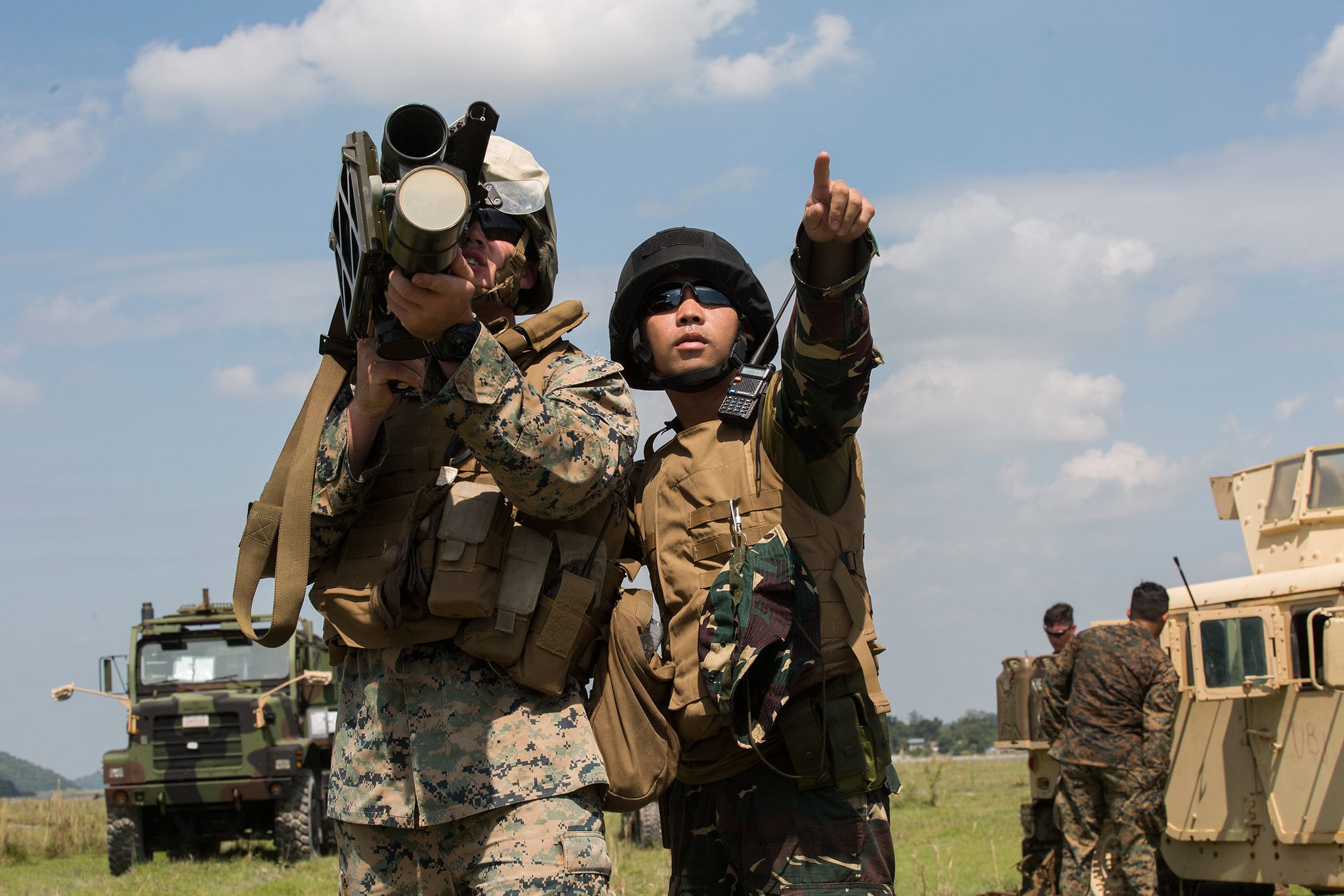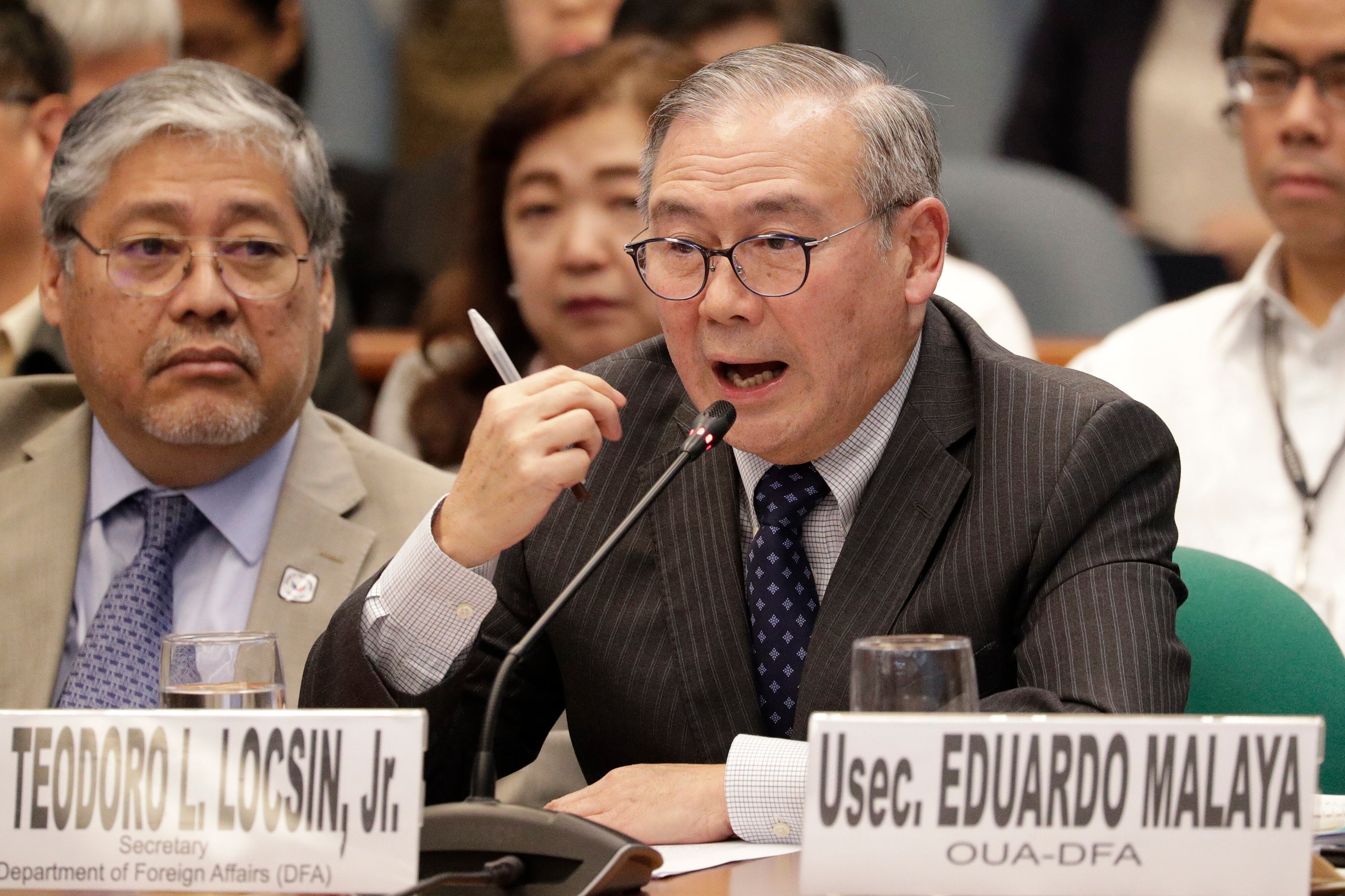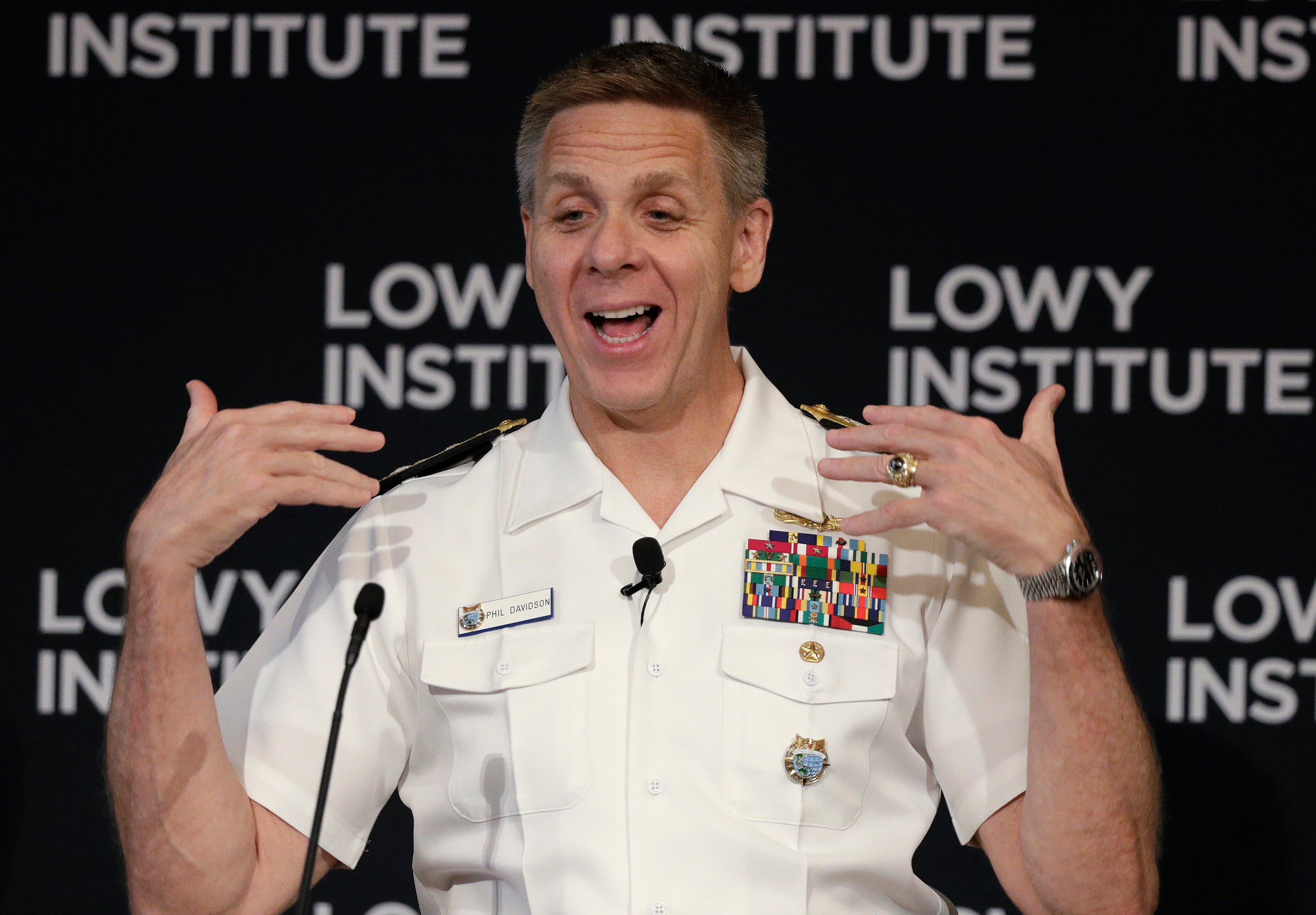MANILA, Philippines — The Philippine president has suspended his decision to terminate a key defense pact with the United States, at least temporarily avoiding a major blow to one of America’s oldest alliances in Asia.
Foreign Secretary Teodoro Locsin Jr. said Tuesday he dispatched a diplomatic note to the U.S. ambassador in Manila informing the U.S. government that the Philippines is delaying its decision to abrogate the Visiting Forces Agreement by at least six months.
Washington immediately welcomed the move.
“Our longstanding alliance has benefited both countries,” the U.S. government said in a statement released by its embassy in Manila. “We look forward to continued close security and defense cooperation with the Philippines.”
President Rodrigo Duterte’s administration notified the U.S. government on Feb. 11 that it intends to abrogate the 1998 agreement, which allows the entry of large numbers of American forces for joint combat training with Filipino troops and lays down the legal terms for their temporary stay. The termination would have taken effect after 180 days, in August, unless both sides agreed to keep the agreement.
RELATED

The waiting time will be suspended by at least six months and could be extended by another half a year, according to the diplomatic letter to the U.S., which cited unspecified “political and other developments in the region.”
Philippine Ambassador to Washington Jose Manuel Romualdez told The Associated Press by telephone that he and his American counterpart, Sung Kim, helped discuss what could be done after the coronavirus pandemic hit and hampered possible talks ahead of the agreement’s actual abrogation in August.
“We both were concerned about the deadline for the termination, which was coming close,” Romualdez said.
U.S. President Donald Trump’s expression of readiness to help the Philippines deal with the pandemic during a telephone call with Duterte in April fostered the Philippine decision, Romualdez said.
Key Duterte officials led by Locsin have cited the security and economic benefits the allies have gained from the treaty alliance.

Former Philippine Foreign Secretary Albert del Rosario said the alliance has deterred aggressive Chinese actions in the disputed South China Sea, including possible construction of structures in Scarborough Shoal, a disputed fishing area off the northwestern Philippines that China effectively seized after a tense standoff in 2012.
The Philippines has protested other assertive actions by Beijing in recent months in disputed waters where Vietnam, Malaysia, Taiwan and Brunei are also locked in increasingly tense territorial disputes with China.
RELATED

Duterte has defended his decision to abrogate the pact with the U.S., saying the Philippines can survive and address a long-running communist insurgency and threats by Muslim extremists in the largely Roman Catholic nation’s south without American military assistance.
“Do we need America to survive as a nation?” Duterte asked in February. “Do we need … the might and power of the military of the United States to fight our rebellion here and the terrorists down south and control drugs?”
“The (Philippine) military and police said, `Sir, we can do it,'” Duterte said.





